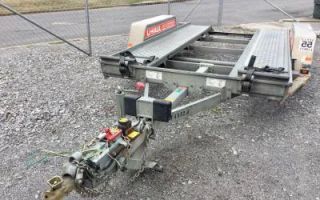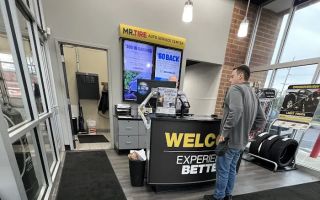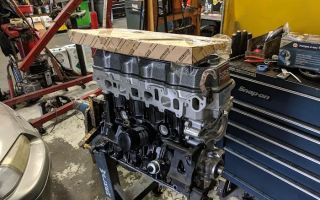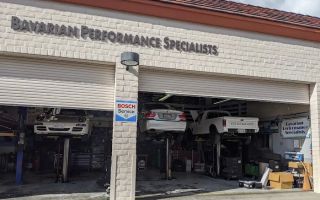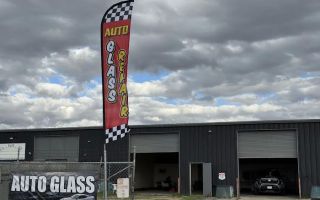Why Your Trailer Needs Regular Inspections for Towing Readiness
- 1. Introduction to Trailer Inspections
- 2. Why Regular Trailer Inspections Are Crucial for Towing
- 3. Key Areas to Check During a Trailer Inspection
- 4. Common Trailer Issues That Can Impact Towing Readiness
- 5. Real Case: The Importance of Timely Trailer Inspections
- 6. How to Plan Your Trailer Inspections
1. Introduction to Trailer Inspections
Whether you use your trailer for personal, recreational, or business purposes, ensuring it's in top condition for towing is crucial. Regular trailer inspections help you avoid breakdowns, accidents, and expensive repairs by catching issues early. This article will highlight why your trailer needs regular inspections for towing readiness, covering key areas to inspect and how timely maintenance can save you from unexpected troubles on the road.
2. Why Regular Trailer Inspections Are Crucial for Towing
Regular inspections are vital for ensuring that your trailer is always ready to be hitched and towed safely. Here’s why:
- Safety: A trailer with worn-out parts or undetected issues can pose serious safety risks to both the driver and others on the road. Regular checks ensure that essential parts like brakes, lights, and tires are working properly.
- Preventing Damage: By spotting minor issues before they turn into major problems, you can prevent costly damage to your trailer, vehicle, or cargo.
- Legal Compliance: Many areas have legal requirements for trailer safety, such as ensuring working lights, secure couplings, and properly inflated tires. Regular inspections help ensure you're meeting these regulations.
- Long-Term Cost Savings: Catching potential problems early can save you money on repairs or replacements that would otherwise arise from neglecting your trailer’s condition.
Ultimately, keeping your trailer in top towing condition is an investment in both safety and the longevity of your equipment.
3. Key Areas to Check During a Trailer Inspection
When inspecting your trailer for towing readiness, there are several key areas to focus on:
- Brakes: Ensure that your trailer’s brake system is functioning properly. Check for any unusual sounds, lack of responsiveness, or wear and tear on brake pads.
- Tires: Inspect your trailer tires for wear, punctures, and adequate air pressure. Tires in poor condition can lead to blowouts, especially when towing heavy loads.
- Lights: Verify that all trailer lights, including brake lights, turn signals, and side markers, are working. Malfunctioning lights can make towing dangerous and result in traffic violations.
- Hitch and Coupling: Inspect the hitch and coupling system to make sure it’s secure and in good condition. A loose or broken hitch can lead to dangerous detachment while towing.
- Suspension System: Check the trailer’s suspension system for wear and tear. A well-functioning suspension ensures a smoother and safer towing experience.
- Axles: Inspect the axles to ensure they’re not misaligned and that they’re able to support the weight of the load you're carrying.
These areas are essential for maintaining towing readiness. Regular checks on these parts can prevent a variety of issues that may arise during travel.
4. Common Trailer Issues That Can Impact Towing Readiness
Here are some common problems that can affect your trailer’s towing readiness, often detected during regular inspections:
- Brake Failure: One of the most critical issues for towing safety is brake failure. Inspecting your trailer’s braking system regularly ensures that your trailer can stop safely when needed.
- Worn Tires: Tires are subject to wear and tear, especially under the strain of heavy towing. Worn-out tires can increase the risk of blowouts and accidents.
- Damaged Lights: Malfunctioning or damaged lights can prevent other drivers from seeing your trailer at night or in bad weather, putting you at risk for accidents.
- Loose Hitch: A loose or unsecured hitch can cause your trailer to detach while on the road, which is a major safety hazard.
- Corroded Couplings: Rust and corrosion can cause couplings to become faulty, preventing your trailer from securely attaching to your vehicle.
By conducting regular inspections, you can identify and address these issues before they lead to bigger, more expensive problems on the road.
5. Real Case: The Importance of Timely Trailer Inspections
Take the case of Tom, a seasoned traveler who had always ignored routine trailer inspections. During one of his cross-country trips, a loose tire almost caused him to lose control of his trailer on the highway. Thankfully, a quick-thinking mechanic spotted the issue before it became a major hazard. After that scare, Tom decided to invest in regular trailer inspections. His decision not only improved the safety of his towing but also saved him from costly repairs that could have resulted from neglecting his trailer's condition.
6. How to Plan Your Trailer Inspections
Planning your trailer inspections is essential for maintaining towing readiness. Here’s how to stay on top of it:
- Set a Regular Schedule: Schedule inspections every 6 to 12 months, depending on how often you use your trailer. If you use it frequently or for long trips, more frequent checks may be necessary.
- Pre-Towing Inspections: Before each towing trip, conduct a quick inspection of your trailer to check for any obvious issues like tire pressure, brake lights, and hitch security.
- Professional Inspections: Consider hiring a professional to inspect your trailer every year to ensure that all components, from brakes to suspension, are in top condition.
Regular and thorough inspections are key to keeping your trailer in safe and ready-to-tow condition, minimizing the risk of unexpected breakdowns and ensuring a smooth journey every time.




